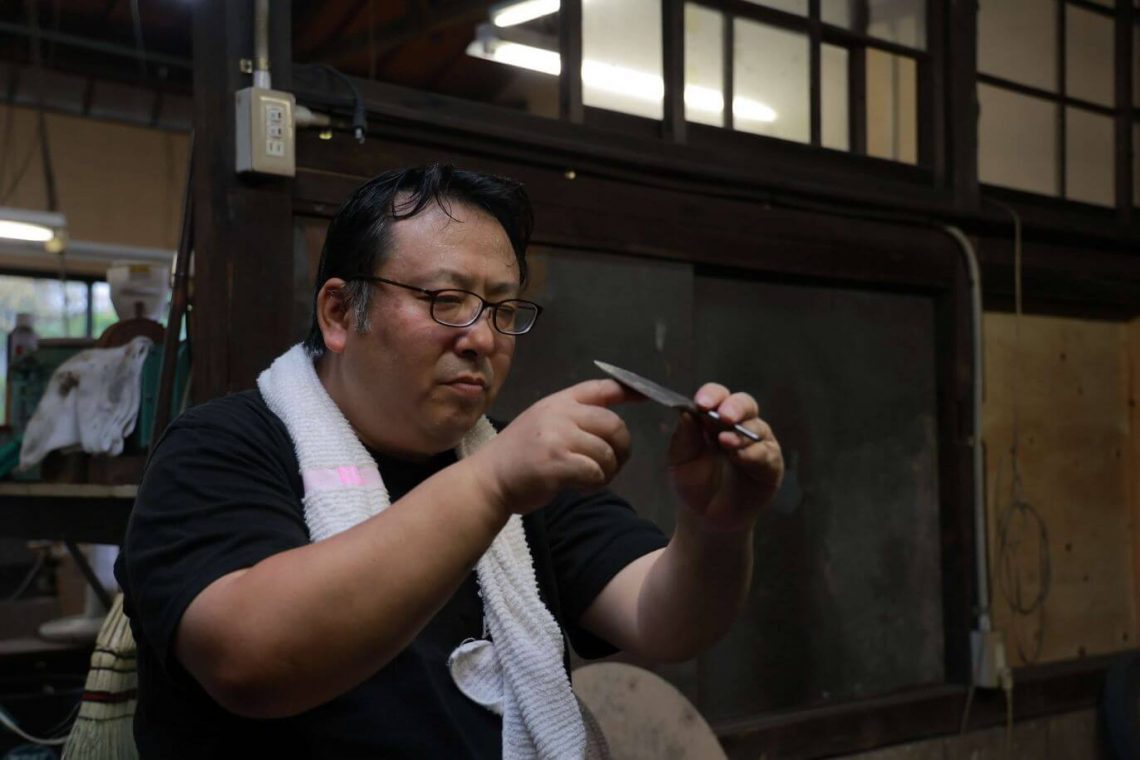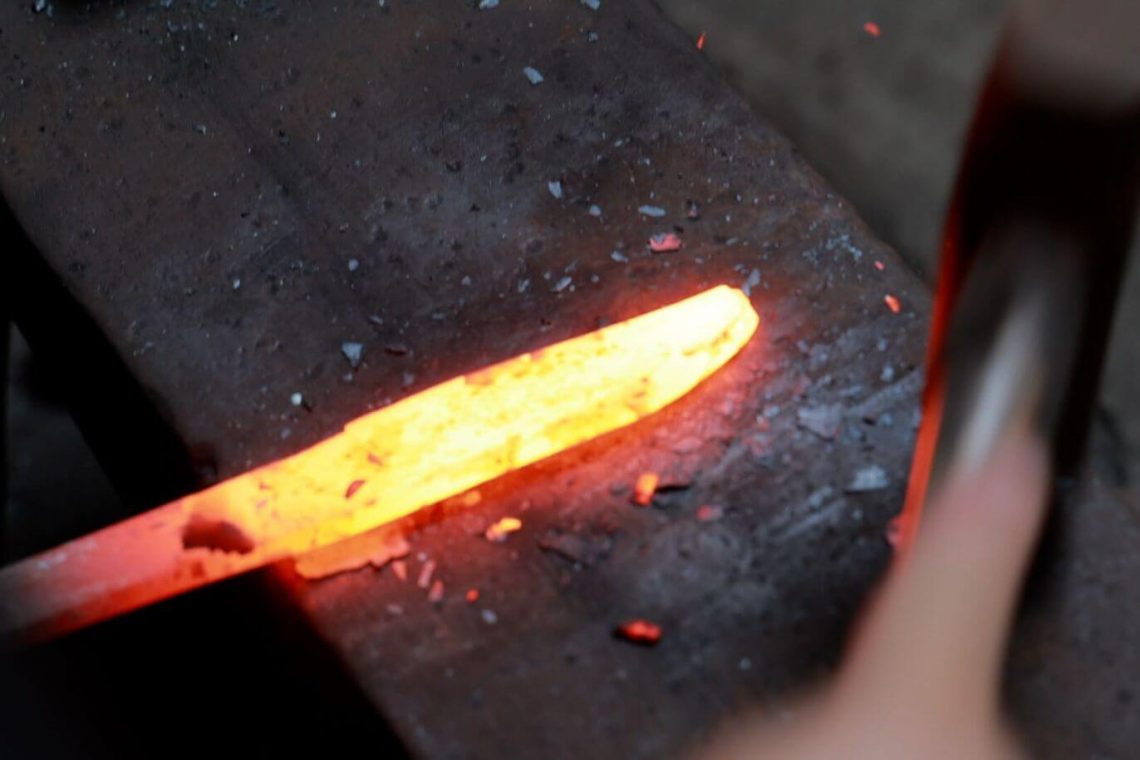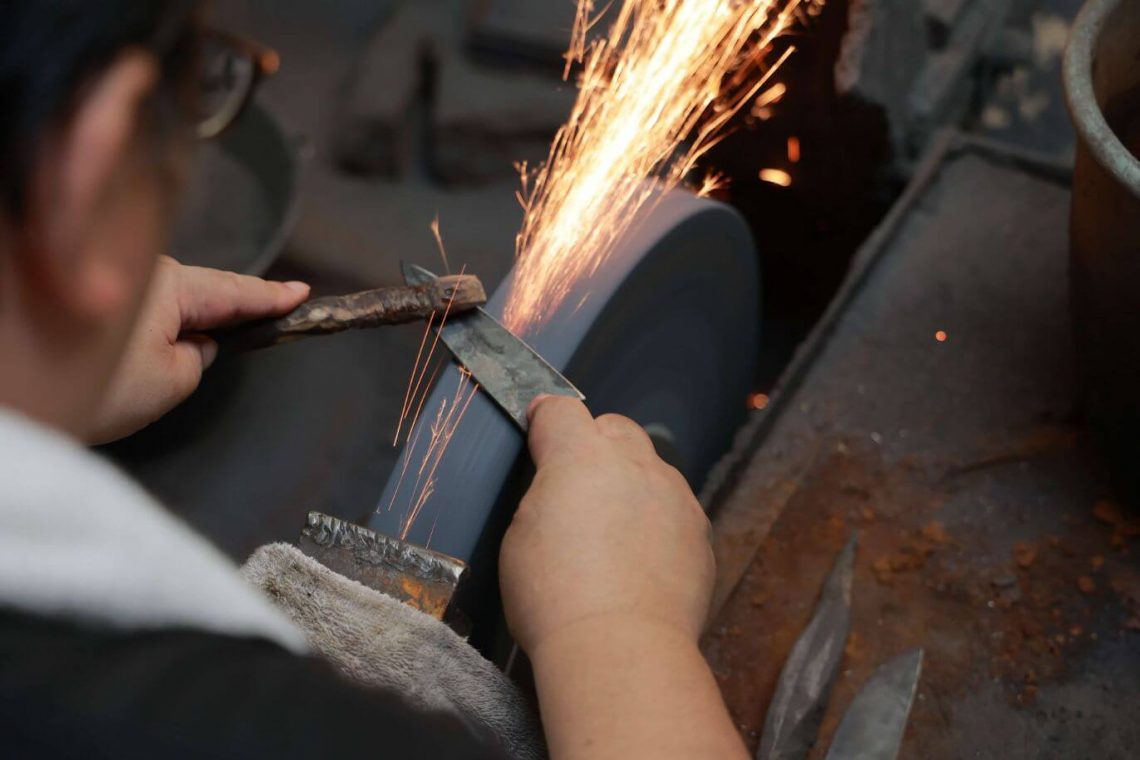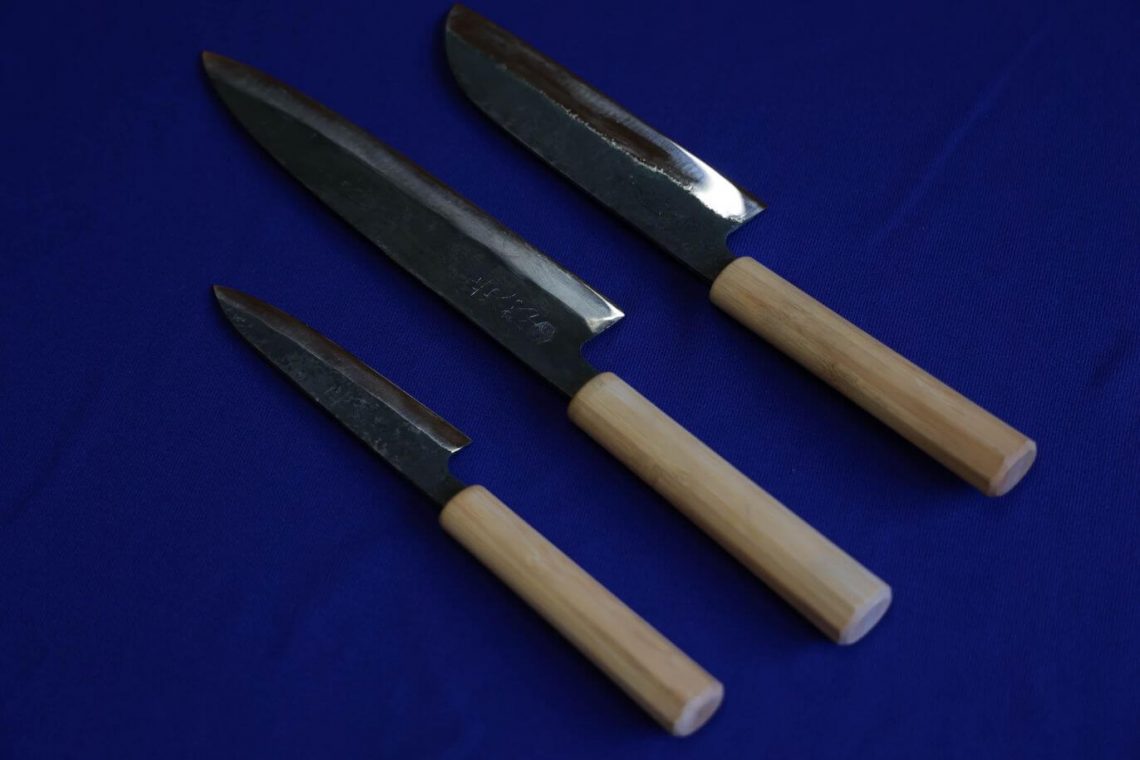Functional beauty in form, forged from flames and hammer.

Shojiro Scissors and Blade Craft began when the first-generation Shojiro relocated from Minami-Senju in Tokyo to Narita and established the business. The third-generation craftsman, Shojiro Ishizuka, is his grandson.
Initially, the focus was on making scissors, and they did not produce knives. However, after a customer requested if they could make knives, they gradually began to do so through trial and error.

The manufacturing process is, simply put, the same as that of sword smithing. There are no molds for pouring molten iron; instead, a heated iron plate is hammered, reheated, and hammered again. This process is repeated multiple times to shape the metal.
This traditional technique is called “sohizukuri” (total fire forging). Scissors and blades produced through this method may appear rugged and powerful at first glance, but in reality, everything—from the temperature of the fire to the type, shape of the charcoal used, and the way the hammer strikes—has been meticulously calculated and crafted.
The ease of use and sharpness of these tools speak for themselves, earning high praise, especially among professional chefs.
The new “Kurokawa Collection” for the year Reiwa 6 (2024) features three types of knives: a gyuto knife, a santoku knife, and a petty knife. This series has also won the Director’s Award from the Small and Medium Enterprise Support Corporation. The blackened finish, a mark of hand-forging, is emphasized, giving it a bold appearance. However, despite its rugged look, the knives are light, easy to use, and simple to maintain.


Shojiro Hasami Hamono Kougei Co.,Ltd.
286-0846 697-1 Matsuzaki,Narita,Chiba
shojiro ishizuka
TEL +81(0)3-476-26-8061
FAX +81(0)3-476-36-7566
web:http://www.shojiro.com/


